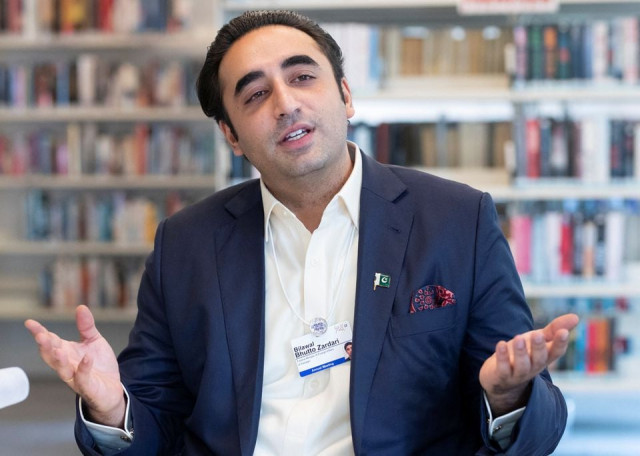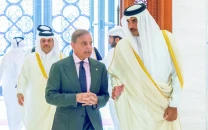Bilawal makes pitch for re-engagement with India
FM favours economic engagement with India which might compel both sides to refrain from extreme measures

Describing Pakistan as "internationally isolated and disengaged", Foreign Minister Bilawal Bhutto-Zardari on Thursday made a strong pitch for re-engagement with India asking whether cutting of ties with India served the country's interests.
"Does it serve our interests, do we achieve our objectives whatever they may be, be it Kashmir, be it rising Islamophobia, the Hindutva supremacist nature of the new regimes and the governments in India? Does it serve our objective that we have practically cut off all engagements," asked Bilawal while speaking at the Institute of Strategic Studies in Islamabad.
"That I as foreign minister, as a representative of my country, not only speak to the Indian government but I don't speak to the Indian people and is this the best way to communicate or achieve Pakistan's objectives," he added.
The relationship between Pakistan and India is at a standstill since India revoked the special status of disputed Jammu and Kashmir in August 2019. In reaction to the Indian unilateral move, Pakistan downgraded ties with India and suspended bilateral trade.
There was some hope of rapprochement in February 2021 when the two countries renewed the ceasefire along the Line of Control (LoC). The truce is still holding but the two sides could not agree on the next steps to resume talks.
Read Bilawal for tapping vast scope in Pak-Iran trade
But with the change of government, there has been a renewed hope for some level of engagement. It is believed that some kind of "back channels" are active to find a way out of the current impasse.
Against this backdrop, the statement of Foreign Minister Bilawal indicated that there was an eagerness on part of the current government to bring some shift.
Bilawal, however, admitted that Indian "incredible assault" on Pakistan’s position on Kashmir, attempts to change the demography of the disputed territory and recent Islamophobic remarks of the BJP officials made it "very difficult, if not impossible" for Pakistan to re-engage with India.
"We don't have a trading relationship with India and many will argue absolutely we should not. The environment is not as such, given these outrageous assaults on our principles it would be inappropriate for Pakistan to take such a step," he said.
He, however, said others would argue in favour of trade ties while referring to the "great power" conflicts between the US and China.
He said economic engagement between the US and China was one of the reasons the tussle between the two powers didn't get as bad as many might have predicted.
He then referred to the first term of Benazir Bhutto in 1988 saying perhaps it was the time Pakistan could have created the kind of economic engagement with India that might have compelled both sides not to resort to extreme measures.
While Bilawal may have understood the difficulties of engaging with India at this stage, he pushed for directly communicating with the people of India, who according to him, were not responsible for the steps taken by the Modi government.
"If I am taking at them through the media, through press conferences, through press releases and not talking with them then am I able to effectively impact any sort of change. Forget about the government. Surely talking to the people and engaging with the public serves the interests of Pakistan."
The minister said Pakistan was at its crossroads and the current government inherited a country "wherever you look there is a crisis." He said because of the PTI government's flawed policies Pakistan today "is internationally isolated and internationally disengaged."



















COMMENTS
Comments are moderated and generally will be posted if they are on-topic and not abusive.
For more information, please see our Comments FAQ